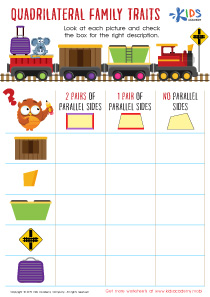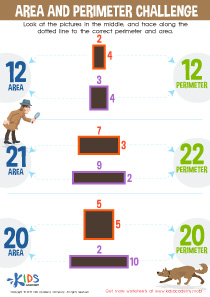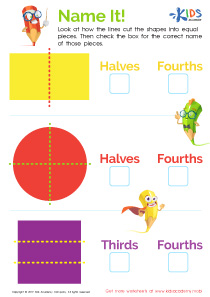Shape identification Tracing Shapes Worksheets for Ages 3-4
3 filtered results
-
From - To
Explore our Shape Identification Tracing Shapes Worksheets for ages 3-4 designed to make early learning fun and engaging. These worksheets help little ones recognize, trace, and differentiate various shapes such as circles, squares, and triangles while developing fine motor skills. Perfect for preschool and kindergarten preparation, they offer clear, colorful images and easy-to-follow instructions that encourage young learners to build a strong foundation in geometry. Download now from Kids Academy and watch your child’s confidence grow as they master shape identification through playful and educational activities tailored for their developmental stage.
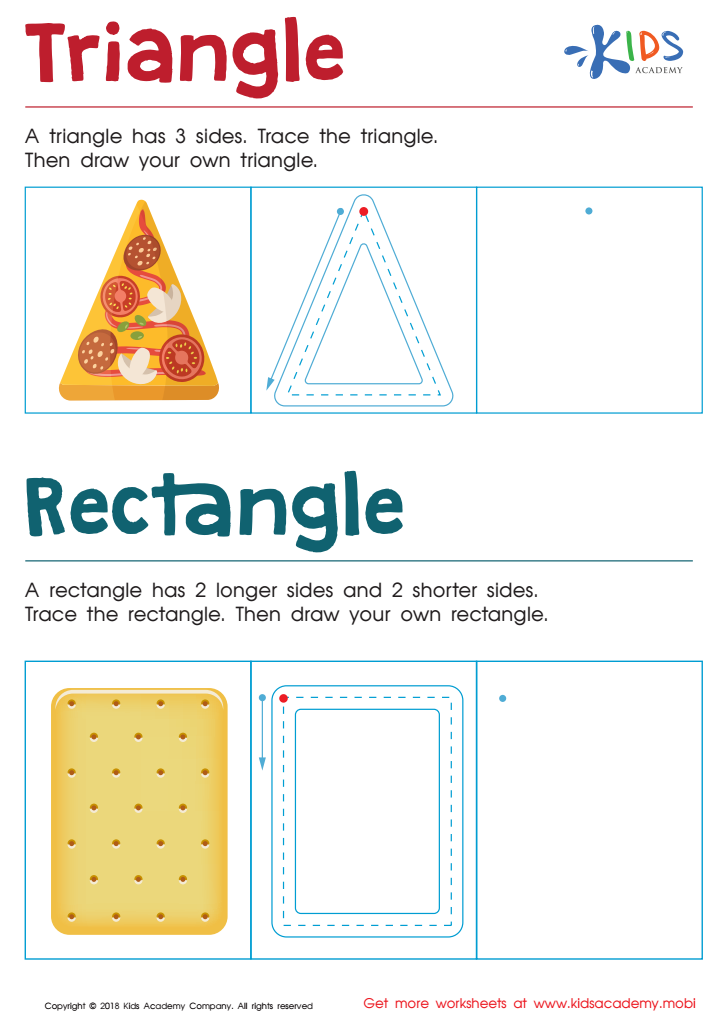

Triangle Rectangle Worksheet
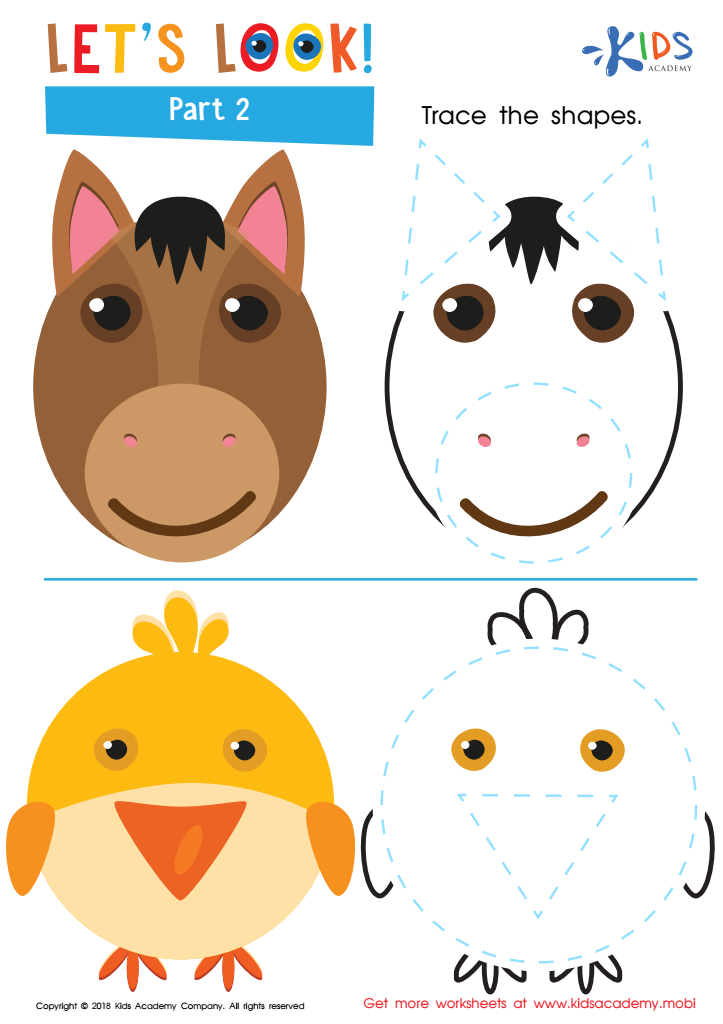

Let's Look! Part 2 Worksheet
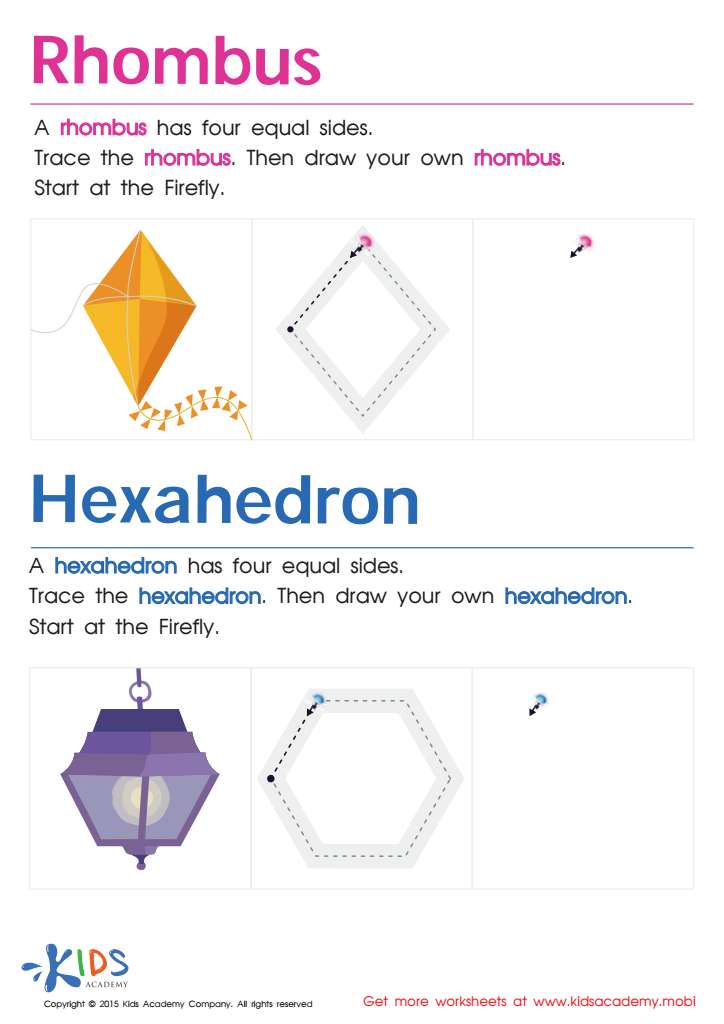

Draw a Rhombus And a Hexahedron Printable
Early childhood is a critical period for cognitive and motor skill development, and activities such as shape identification and tracing offer significant benefits for young children ages 3-4. Understanding and recognizing shapes is one of the foundational skills that supports a range of future learning outcomes. It helps children build their spatial awareness and geometric reasoning, which are essential skills in the early stages of math education. Identifying shapes also improves visual perception skills by helping children notice similarities and differences, which is a crucial part of early literacy as well.
Tracing shapes goes beyond just recognition; it aids in fine motor skill development, enhancing hand-eye coordination and preparing children for writing. When children practice tracing, they learn to control the movements of their hands and fingers, which is fundamental for tasks such as holding a pencil, buttoning a shirt, or tying shoelaces.
Combining shape identification with tracing provides a comprehensive approach to early learning. Teachers and parents should incorporate these activities into playtime or structured learning because they seamlessly blend fun and education, fostering both a positive attitude towards learning and essential developmental skills. In essence, these activities not only support academic readiness but also help children become more independent and confident in their abilities.
 Assign to My Students
Assign to My Students









